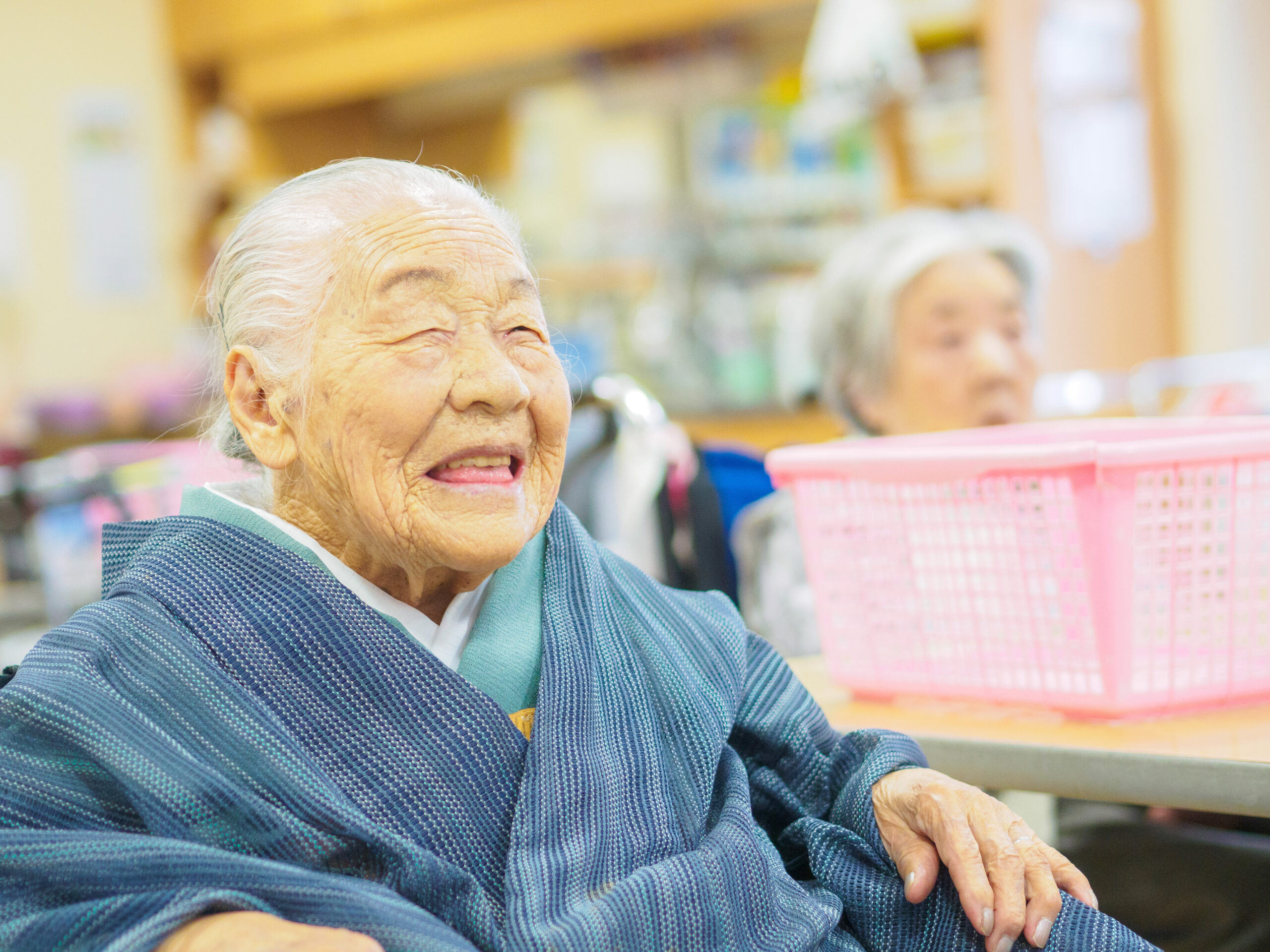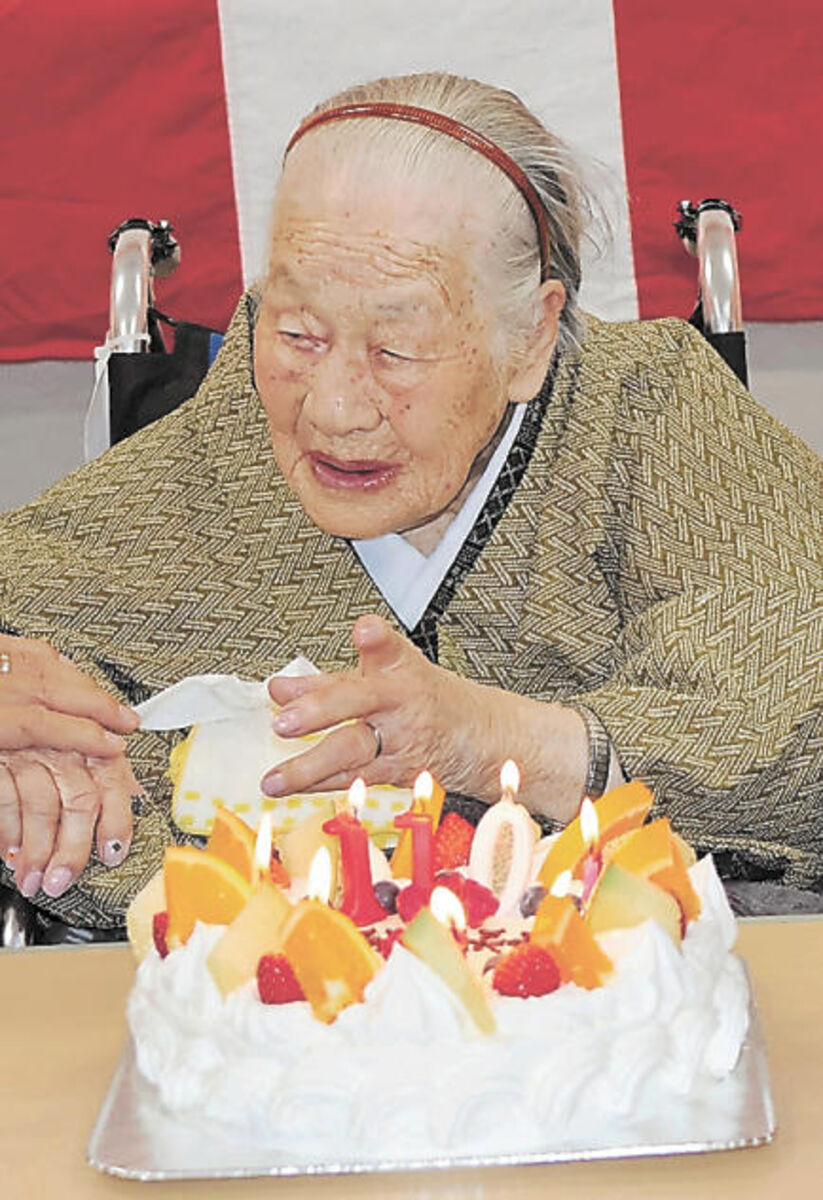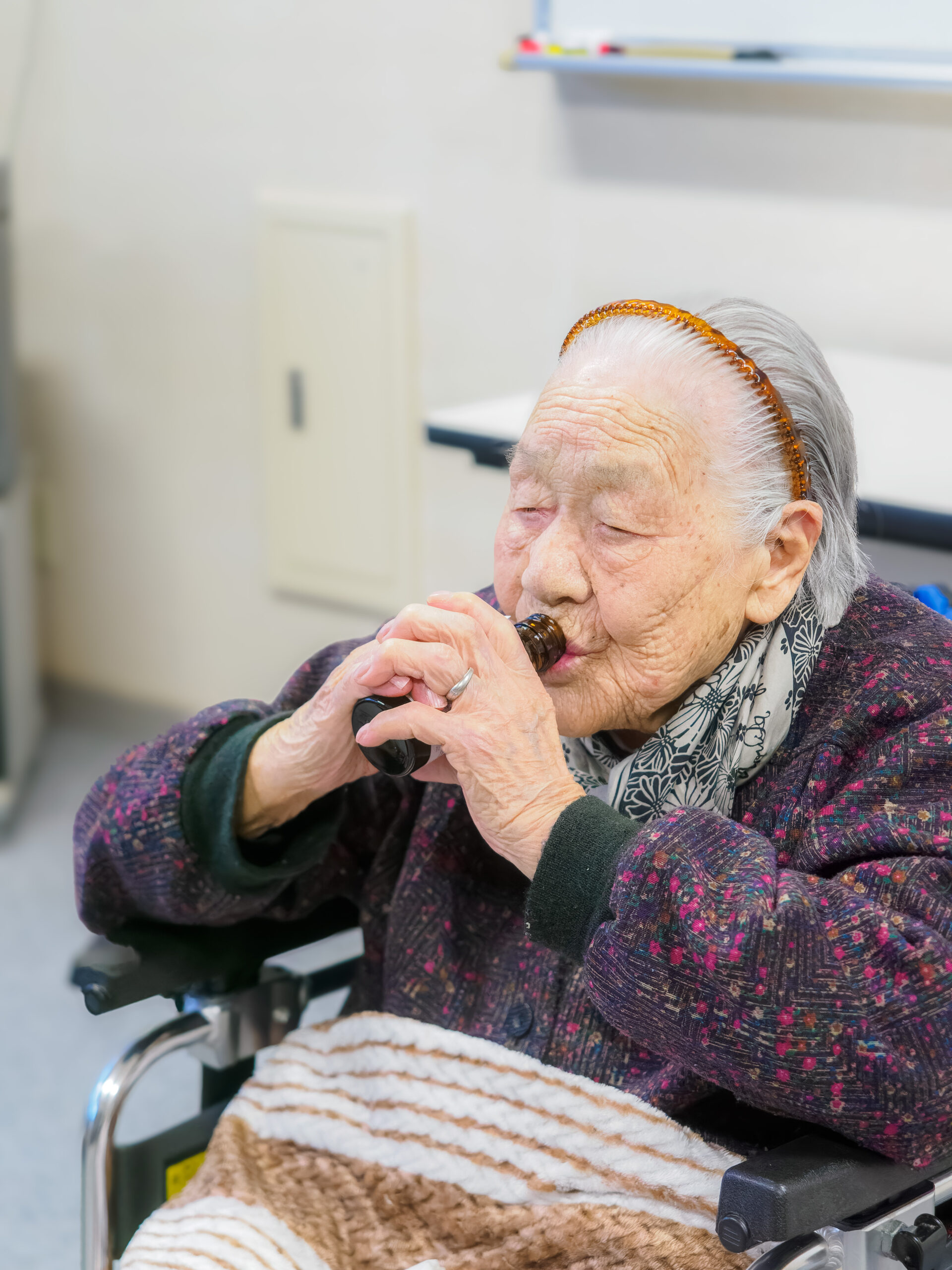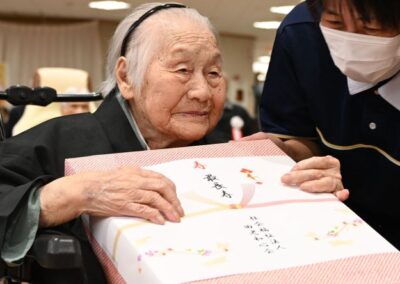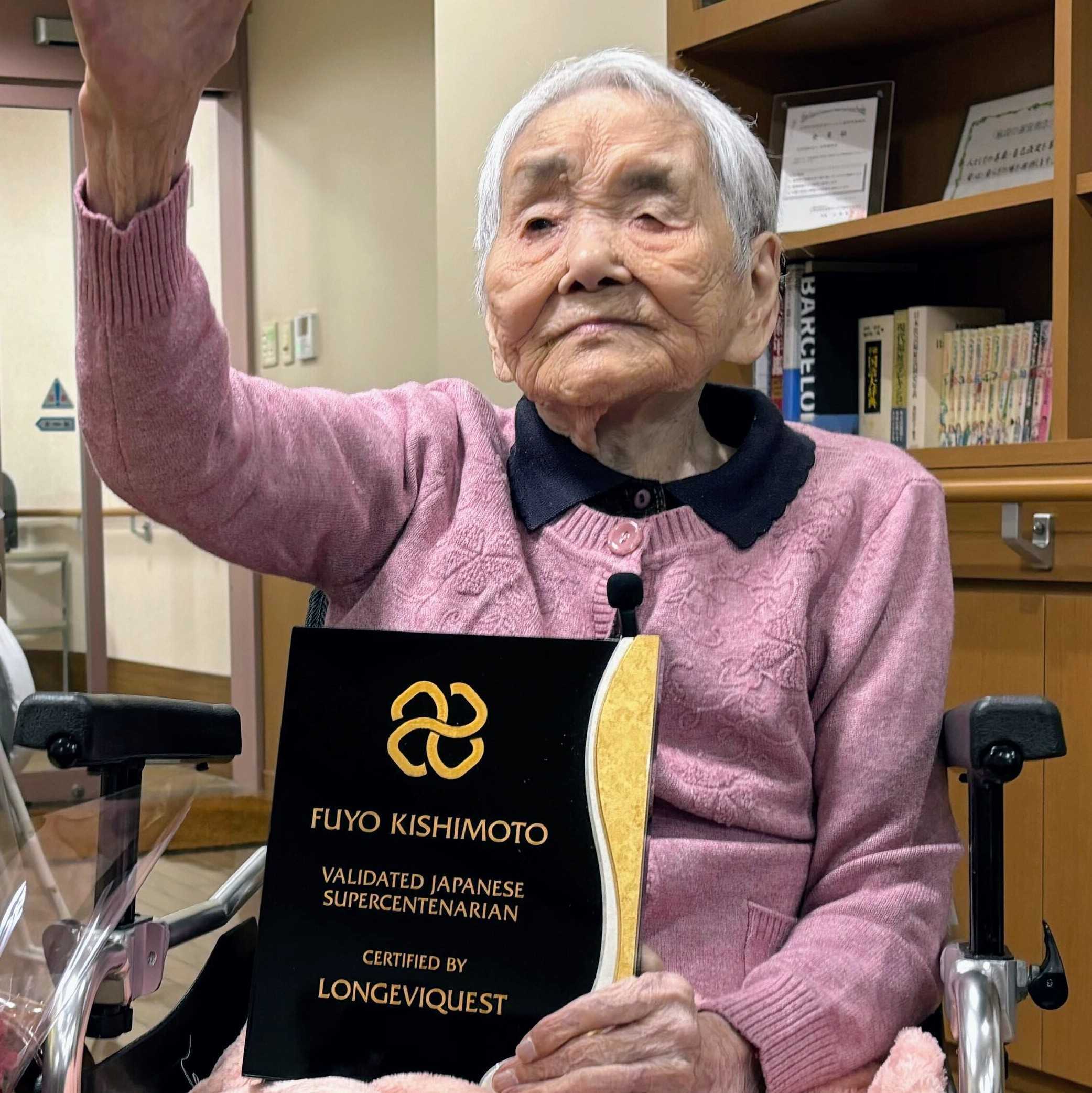Ichi Kubota (Japanese: 久保田イチ) is a Japanese supercentenarian whose age has been validated by LongeviQuest.
BIOGRAPHY
Ichi Kubota was born in the village of Tarō (now part of Miyako City), Iwate Prefecture, Japan, on 30 May 1913, as the youngest of five children. At the age of 21, she married a man four years her senior, and they had eight children.
Until she was around 70 years old, she assisted in running a dry cleaning shop owned by her husband and son. Following her retirement, from her 70s until the age of 97, she devoted herself to gateball, engaging in two practices each day—morning and afternoon—exercising under the sun regularly. A sociable individual, she was a member of various clubs, including the fishing association (women’s association), the local women’s association, and the senior citizen’s association. Additionally, she took pleasure in traveling throughout the Tohoku region until her 90s. She also attended Kodaiko and folk song lessons with her friends.
At the age of 97, she experienced the Great East Japan Earthquake, which occurred around 14:46 on March 11, 2011. In response to the quake, she and her family evacuated to a temple situated on a hill near their home, successfully avoiding the disaster. Approximately ten minutes after their arrival at the temple, a tsunami, reaching half the height of the temple stairs, struck the area. (Records indicate that a 10-meter tsunami reached the Taro area.) During her evacuation at the temple for about a week, she had to endure separation from her family and experienced a slight decline in health. She resided temporarily in a nursing home, a facility she had regularly utilized for day care, and made a full recovery. The house where she and her family resided was engulfed by the tsunami. It wasn’t until four months after the earthquake that she could reunite with her family.
Her longevity is attributed to two key factors. Firstly, she attributes it to her consumption of sea urchin. In Miyako City, where she resides, the sea urchin fishing season spans from June to August annually. During this three-month period, she consumed approximately 1.5 kg of sea urchin. Additionally, she savored abalone dishes, particularly abalone miso soup, during the winter abalone fishing season. Secondly, her daily routine was drinking an energy drink. For nearly 50 years since its debut, she has consistently imbibed Lipovitan D. Her family attributes her health to the more than 20 years she spent playing gateball under the sun in her later years. Thanks to extensive sunlight exposure, her bone density remains high. Even in instances of falls, whether at home or in the nursing facility, she never suffered fractures or other injuries. Known for her sociability and popularity, she maintained a fulfilling life surrounded by numerous friends until the earthquake struck at the age of 97.
RECOGNITION
In September 2020, she received a special visit from the city’s mayor and was recognized as the seventh-oldest living person in the prefecture at that time. Subsequently, the mayor has continued to visit her annually, marking four consecutive visits as of September 2023.
Following the passing of Emi Matsuda on 28 August 2023, Kubota became the oldest living person in Iwate Prefecture.
Her age was verified by Japan’s Ministry of Health, Labour, and Welfare (MHLW), as well as Yumi Yamamoto, Jack Steer, Ryohei Asano, and Tokiko Kubota, and validated by LongeviQuest on 22 November 2023.
ATTRIBUTION
(All the information regarding Ichi Kubota’s biography was gathered through interviews conducted by LongeviQuest with her family.)
* Iwate Prefecture PressRelease
* Miyako City Public Relations
* ”県内最高齢110歳の女性 宮古市長が訪れ長寿を祝う” – NHK Iwate News
* “「150まで生きたい」 110歳の久保田イチさん、岩手県内の最高齢者に” – Kahoku Shimbun, 1 November 2023
GALLERY
Ichi Kubota nov 2023 110
In November 2023, aged 110, drinking her favorite energy drink. (Source: Courtesy of the nursing home)
Related Profiles
[crp limit=’4′ ]


